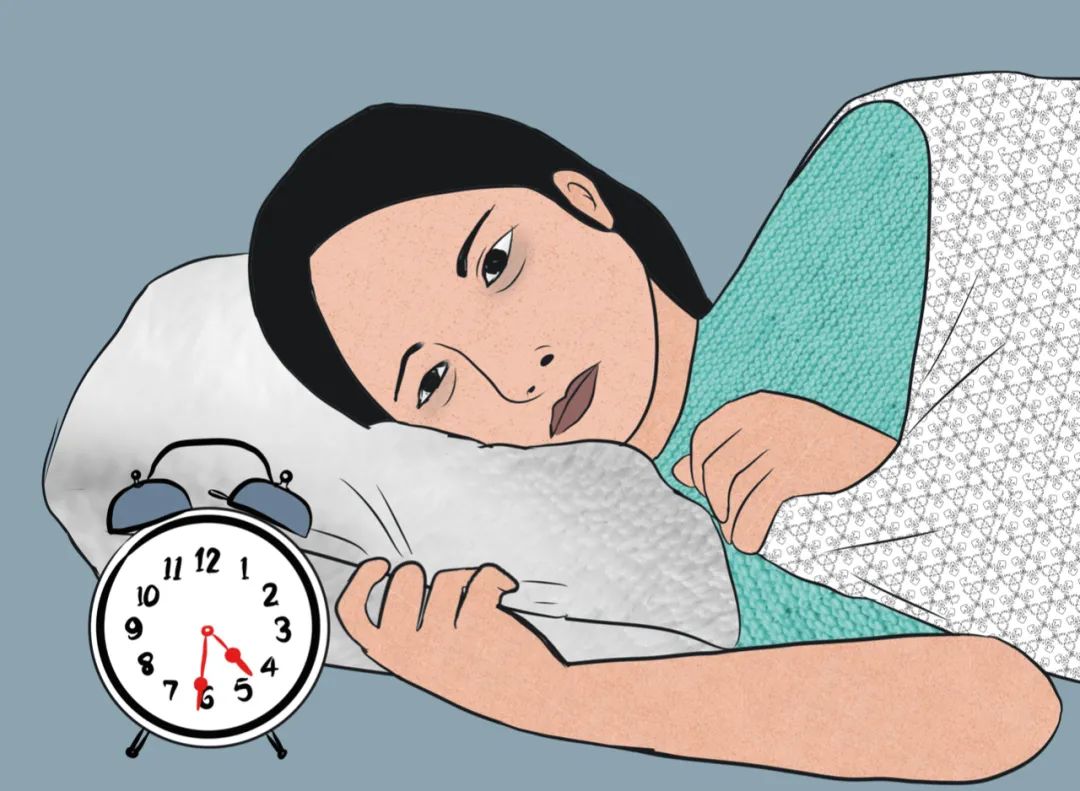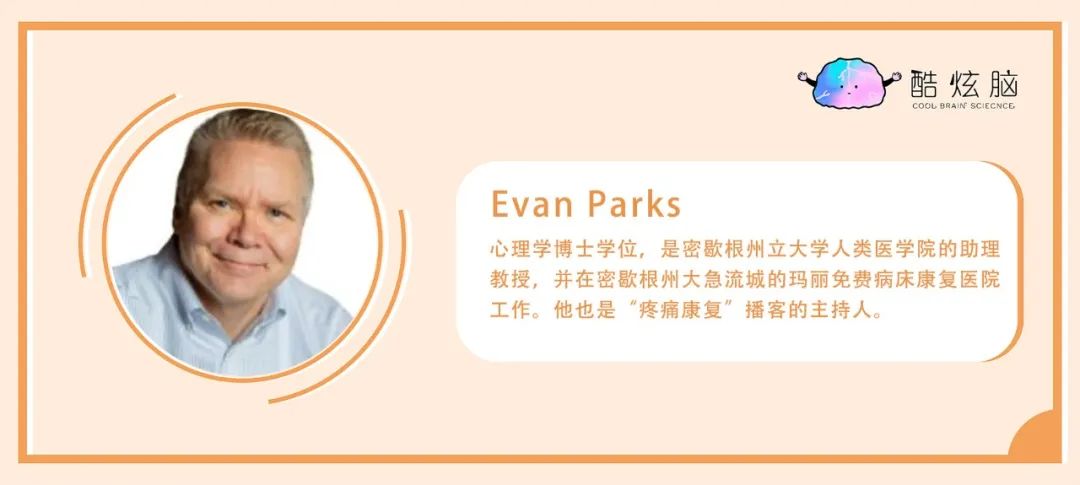Two psychological tips to help you fight with chronic pain
Author:Cool brain Time:2022.06.29


Via: pixabay
The following is the audio of the full text of Miss Sister
Author | Evan Parks
Translation | Chunwu Thousand Layers
Rewriting | cotton bear
Grade -Cool Brain Creative
Reading | Pigeon Tsai
Artist | Old carving worm
Edit | Sales increase
1. How long do we have pain and pain in ourselves often show too much?
2. We believe that certain events can cause pain, and we can hardly avoid pain. 3. By broadcasting the skeptical seeds, we can destroy the process of pain
The business meeting is over, but nothing is solved. You know that things will not be smooth.
On the way home, you feel exhausted. You feel that your shoulders and necks are painful, and the feeling of headache that was familiar with before began to worsen. You foresee that this headache will be a bad problem. But is it really like this?
People who fight with chronic pain often feel confidently understand them and their bodies. When they rained, their knees would hurt, and the large procurement of going to the supermarket would cause their pain to erupt in the next 24 hours.
Is there any possibility, if we are just guessing the psychological prediction of pain and pain? If these predictions are completely wrong, or worse, we have the ability to make these pains a prediction of self -realization?

VIA: "Life Big Bang"
Cause of pain
A doctor friend who has struggled with migraine for many years tells this wonderful personal story. One Saturday afternoon, he and his wife drove two hours to attend a wedding. When he drove, the light of the sun suddenly flashed from the windshield of a car coming on a car, making him feel dazzling when driving.
Under normal circumstances, strong light causes his migraine, and this time is no exception. He immediately began to feel the signs of migraine.
But what does he do? He was already halfway to the wedding scene. Although there was medicine at home, he needed another hour to get home to go home.
It was a wonderful day. He and his wife had no other plans, so he said to his wife, "I just want to continue driving to see if I can come. I don't want to look back now."
When he tells the story, he "knows" this migraine will be very serious. He knew that in the end, he would vomit because of pain, endured fuzzy vision and ice application for several hours, and lay down and waited for migraine to disappear.
The closer to the divorce, he decided to at least try to participate in the ceremony in the church, but he had to sit close to the back so that he could leave quickly when needed.
Surprisingly, he successfully completed the ceremony and now he needs to decide whether to attend the enrollment. No surprise, headaches are still intensifying. He thought: "Should I stay, or should I leave?"
What he decided to do next changed his chronic pain. He said this: "I know this will be a pleasant enrollment, with delicious food and good friends. I just don’t want to miss it. I decide that if the taste of the food flows out of my throat has me Half of the time when eating is so good, that's worth it! "
When he attended the enrollment, migraine began to fade in a short period of time. He has never vomited. He did not have any other typical symptoms with migraine.
His migraine experience that day confused him. As a doctor, he knew the biometer mechanism of migraine. He also knows how he takes the medicine he takes to reduce his pain. He often treats patients with migraine, and these patients have been struggling for many years and have not really relieved. But what happened at the wedding?
Helpless heart
He began to doubt the explanation of his head and whether his prediction was true, effective and important. He questioned whether it was worth hearing the mind of the brain.
Through his own experience, he realized that his brain's prediction of pain was actually a problem. He now believes that what his brain is said is useless.
Since then, whenever his migraine symptoms appear, he will ask himself a question: "Okay, brain, how do you know that this will become worse? What if you are wrong? What if you? Just guessing or fabricating? "With this problem, he would decide to continue to move forward regardless of his discomfort.
With this new mentality, migraine has never controlled his life. He learned to stop fighting with his thoughts, appeared and devoted himself to the present, and continued to move towards things that are important to him. The pain changed from the front platform of his life to the background.

Via: "Kung Fu Panda"
Our body is prepared for what is expected by mind
When I talked to the patient, I explained the pain of how the nervous system had a skeptic seed in the patient's heart. We are generally confident and think that we know why we have pain and when pain will appear. But what if we are wrong?
I hope that my patient will ask their minds to ask their minds: "Listen, brain, how do you know me? The pain will deteriorate and last for 12 hours, or I will be uncomfortable throughout the weekend? Why never predict that I will only experience two minutes of pain? "
Here is a simple principle of mental mind -our body is prepared for the expected things of the mind. When your brain predicts the worst situation, pay attention to what you hear; your body is ready to accept the brain and say what will happen next. Two psychological tips
You can learn two skills based on mindfulness, which will help you get out of pain when some events trigger you next time when some events will be triggered by some events, so that your brain will start to predict pain.
First, learn to observe your thoughts. You are not your thoughts -your thoughts are not necessarily true, effective and important. They are just ideas.
Second, learn to let go of your tendency to fight with you. You don't need to use positive ideas to fight your negative thoughts, persuade yourself to be good, or try to make yourself feel good. Just thank you for your thoughts and say, "Thank you, thought, tell me how bad things will be. I know you just want to help."
Give up the struggle, show up, devote themselves to the present, and continue to move towards things that are important to you. You can let you use the experience of these principles to tell you whether they are helpful.
Tuyuan Internet

Reference (click slide to view)
1.Parks, E. (May 27, 2022). How to Make Your Headache Optional. Psychology Today.https://www.psychologytoday.com/us/blog/pain-rehabilitation/202205/how-make-your-headache -Optional


Cool brain long -term collection of brain science and psychological articles, welcome to submit
Please submit a mailbox: [email protected]
Click here, let friends know that you love brain science
- END -
Just now, Qingdao's nucleic acid test results were announced yesterday.

Today (July 3) morning,Huangdao District held the second gamePress conference on t...
There are 114 angel donation of 2,5600 ml of angels in Wuchang Hospital in Wuhan City

On July 1st, on the 101st anniversary of the founding of the Communist Party of Ch...